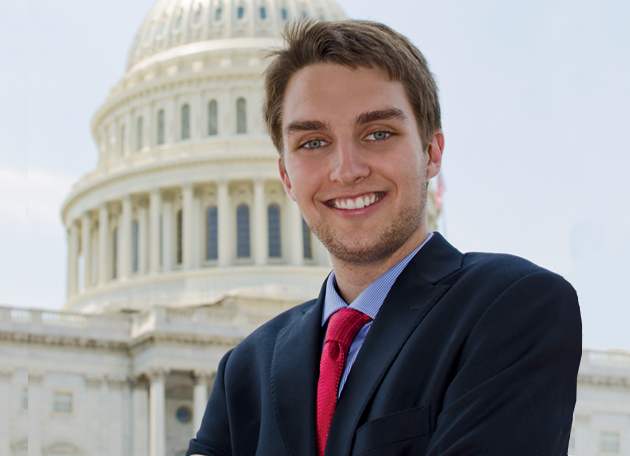
Washington University has become home to some of the best students from across America and around the world, eager to make their marks in medicine, law, commerce, academics, science, public service and more. To help them succeed, the university provides a community that fosters opportunities for developing leadership skills and experience.
Two important recent additions to that community are the New York City Regulatory and Business Externship, inaugurated in 2011 by the Olin Business School and the School of Law, and the Washington, D.C., Programs, launched in 2009 under the guidance of Kent D. Syverud, JD, dean of the School of Law and the Ethan A.H. Shepley University Professor.
These pivotal programs are just a sampling of those available both on and off campus, and the following vignettes are only a handful of the many stories demonstrating how the university works to support, prepare, inspire and propel tomorrow’s leaders today.
Dedicated to international networking
Undergraduate Ethan Lynch, Arts & Sciences Class of ’13, found both inspiration and an epiphany about leadership and power in recent internships and study through the university’s Washington, D.C., Programs.
Lynch, a senior majoring in Arabic language and literature and in international and area studies, is headed to the diplomatic corps. In summer 2011 he interned for the Middle East Program at the Carnegie Endowment for International Peace. At the think tank he was inspired by a former Jordanian deputy prime minister who, Lynch says, was dedicated to studying the Middle East and advancing peace. He helped guide Lynch in analyzing aspects of the “Arab Spring,” from which Lynch drew other lessons.
“I was studying the speeches of Arab monarchs, who were making promises that they were opening up their societies. But our research showed otherwise — that they were just appearing to make concessions,” Lynch says.
“The experience showed me that an organization, or think tank, can refute world leaders and taught me about accountability.”
Lynch, a Louisville, Ky., native, also found inspiration during his fall 2011 internship at the Department of State. There he worked with the Foreign Service Institute to help prepare career diplomats for Middle East postings, educating them in the local language, religion, economy and culture.
“I saw a lot of dedicated diplomats, who are generalists, perhaps previously posted in South America or elsewhere, absorbing and learning a lot. Their dedication inspired me and gave me a new perspective of our diplomatic corps.”
—Ethan Lynch
“I saw a lot of dedicated diplomats, who are generalists, perhaps previously posted in South America or elsewhere, absorbing and learning a lot. Their dedication inspired me and gave me a new perspective of our diplomatic corps.”
Further, Lynch says he learned about the human side of networking as a key to leadership.
“I attained an epiphany over time about the importance of friendship and of people-to-people power,” Lynch says. “Previously I had heard about the importance of building your network, but the ‘network’ seemed like such a cold, intangible thing. But I came to see how it worked on a personal level — at happy hour and other occasions — not just professionally. You build a network earned by trust and based on one-on-one interaction, not on wielding power and dishing out tasks.”
Lynch, a Truman Scholar and recipient of a Pickering Fellowship, which will pay for his graduate study and place him in the Department of State’s Foreign Service, calls the university’s Washington, D.C., offerings “a great program.”
“Becoming a leader is a long path with many steps,” says Lynch, who also performed a State Department internship in Morocco in summer 2012. “What the Washington, D.C., Programs gave me is amazing. And they’re not just stepping stones to me — I really enjoyed them and value what I learned.”
White House team training
For Sarah McDonald, a White House internship through the Washington, D.C., Programs helped her develop her own leadership skills by studying firsthand how those at the seat of power perform and communicate.
Working with the Domestic Policy Council advising the president on immigration policy, she learned that “one characteristic all White House staffers shared was that they were extremely hard working. These are dedicated and passionate professionals,” McDonald says, “working to make a positive difference for the people.”
She made the most of her White House opportunity by closely observing her mentors, “watching them at meetings to see how they communicated, how they worked one-on-one, and how they pulled together for the team effort.”
“I learned that there is no wrong step as long as you keep moving forward.”
—Sarah McDonald, AB ’12
She also was able to sit down with them over coffee and find out how they formed their careers — what courses they took and what experiences they gained to get them where they were.
“Everyone took a different path,” says McDonald, who earned her bachelor’s degree summa cum laude in political science in spring 2012. “I learned that there is no wrong step as long as you keep moving forward.”
McDonald, who also minored in Spanish and business, came to her White House post well-prepared and confident in her writing, listening and communication skills. She says she owes such preparation, in large part, to her involvement in university clubs and activities, such as volunteering with the Latino Youth Tutoring and Mentoring Program and serving as a member of Chimes Junior Honorary Society.
“Lots of opportunities exist to learn leadership on campus,” McDonald says. “Through various activities, you come to recognize what works and acquire real skills you can use later. I would advise others to embrace those opportunities.”
A Chicago-area native, McDonald now works for Deloitte Consulting in Chicago as a business technology analyst.
Service above self
Before entering graduate school, Tod Stephens spent eight years as an Army infantry officer, including three years fighting and leading soldiers into battle in Iraq. Now working to earn an MBA from Olin Business School and a JD from the School of Law next spring, Stephens says, “The concept of ‘leadership’ means something very specific to me.”
To help prepare for a leadership role in the business and legal world, Stephens participated in the New York City Regulatory and Business Externship, administered by both the law and business schools, during the spring ’12 semester. There he worked full time at the Office of Chief Counsel, Internal Revenue Service. At the IRS, Stephens personally managed the cases of several corporate and individual taxpayers, drafted a policy argument against a leading investment bank’s tax treatment of some $80 million in incentive grants, and wrote a motion to dismiss in a $312 million tax controversy involving a global pharmaceutical conglomerate.
The experience, he says, gave him a valuable look inside the heart of the great financial mecca of New York, as well as an expanded perspective on leadership.
“To remind students of this leadership fundamental, the School of Law sends students to join teams at some of our nation’s most sophisticated regulators and businesses through the New York City Regulatory and Business Externship Program.”
—Tod Stephens
“In my opinion, too often the legal-education system asks us to serve our own interests — we compete against each other for individual grades, ranks and publication. The Washington University School of Law recognizes that this necessary competition ignores a central tenet of leadership: Leaders serve selflessly,” says Stephens, a West Point graduate who led more than 300 combat patrols in Iraq; managed day-to-day operations of a 2,500-soldier brigade; and was awarded a Purple Heart, a Bronze Star for Valor and three Bronze Stars, among other honors.
“Leaders serve their organizations, subordinates and communities before they serve their own self-interests,” says the Troy, Ill., native. “To remind students of this leadership fundamental, the School of Law sends students to join teams at some of our nation’s most sophisticated regulators and businesses” through the New York City Regulatory and Business Externship Program. “For one semester, gone is the self-serving competition that our system of legal education demands. Instead, students contribute to the efforts of civil servants and businesspeople alike.”
Upon completing his business and law degrees, Stephens hopes to remain in St. Louis to practice business law.
Prominent in biotech patent law
Becoming a leader can require a blend of attributes and opportunities, says alumna Kate Murashige, known internationally to some as the “mother superior” of biotech patent law. That blend includes hard work and good opportunities, she says, as well as “good timing and a lot of luck.”
For some 30 years Murashige has practiced what she calls “straightforward patent work,” including prosecution, opinions and IP due diligence, in an industry where intellectual property issues can make or break a company or research facility. She is recognized as a pioneer in the industry, having served on the NIH’s Biotechnology Policy Board and the AAAS Committee on Scientific Freedom and Responsibility, and having participated in programs sponsored by the United Nations agency that is responsible for IP (WIPO). But Murashige had to take a winding route to get to where she is today.
“Other lawyers didn’t have the scientific background I did, and I was willing to do the work of trying to get up to speed in this new field.”
—Kate Murashige, PhD, AB ’56
Now a senior partner in the San Diego office of the law firm Morrison & Foerster (and consulting with clients around the world), Murashige earned a bachelor’s degree in chemistry from Washington University in 1956 and a doctorate in organic chemistry from UCLA six years later. That led to a 15-year career teaching at community colleges. Ultimately she got her law degree at the Santa Clara School of Law at night while teaching chemistry during the day, and found herself at a crossroads.
“I was changing my career at a time when biotech was just beginning. Other lawyers didn’t have the scientific background I did,” she says, “and I was willing to do the work of trying to get up to speed in this new field.”
After an unpromising attempt to practice “next case” law with a sole practitioner, she got her start in patent law with Syntex, the company that made the first birth control pill and naproxen. She then became the first female attorney at the Los Angeles law firm Lyon and Lyon.
In 1983 she had the “great advantage” of being hired to an in-house post by Genentech, a bright star at the inception of the biotechnology industry. After a year, Murashige and Thomas Ciotti, a fellow biotech patent-law pioneer whom she describes as her “great benefactor,” started a law firm focused solely on life-science patents — one of the first.
She subsequently became involved in landmark biotech intellectual property cases. One such case involved prosecuting a bovine growth hormone patent for the University of California, which took 20 years from application to issuance and has been valued at more than $250 million. More recently, she obtained potentially blocking patents covering gene silencing using short RNA for a U.K. nonprofit institution.
Although she was one of the first women to move to prominence in patent law, she has become an industry leader for her technical knowledge and legal wiles — not, she says, for her political skills.
“I’ve never been successful getting into a position on a board, for instance,” she says, “because I say what I think (at least that is my excuse).”
Nonetheless, Murashige has played a key role in leading the still-burgeoning biotech industry in serving people worldwide, securing and evaluating intellectual property covering new life-science breakthroughs.
Rick Skwiot is a freelance writer based in Key West, Fla. His latest novel is Key West Story.

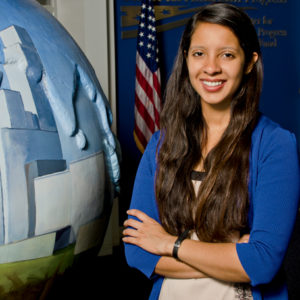
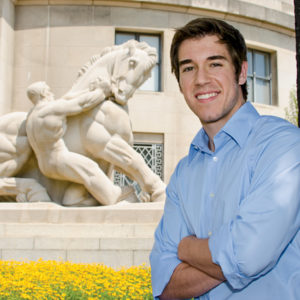
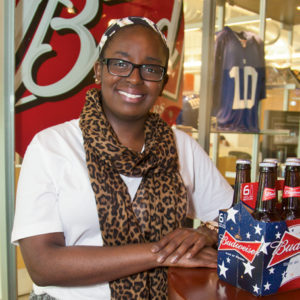
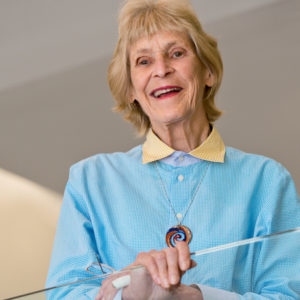
Comments and respectful dialogue are encouraged, but content will be moderated. Please, no personal attacks, obscenity or profanity, selling of commercial products, or endorsements of political candidates or positions. We reserve the right to remove any inappropriate comments. We also cannot address individual medical concerns or provide medical advice in this forum.